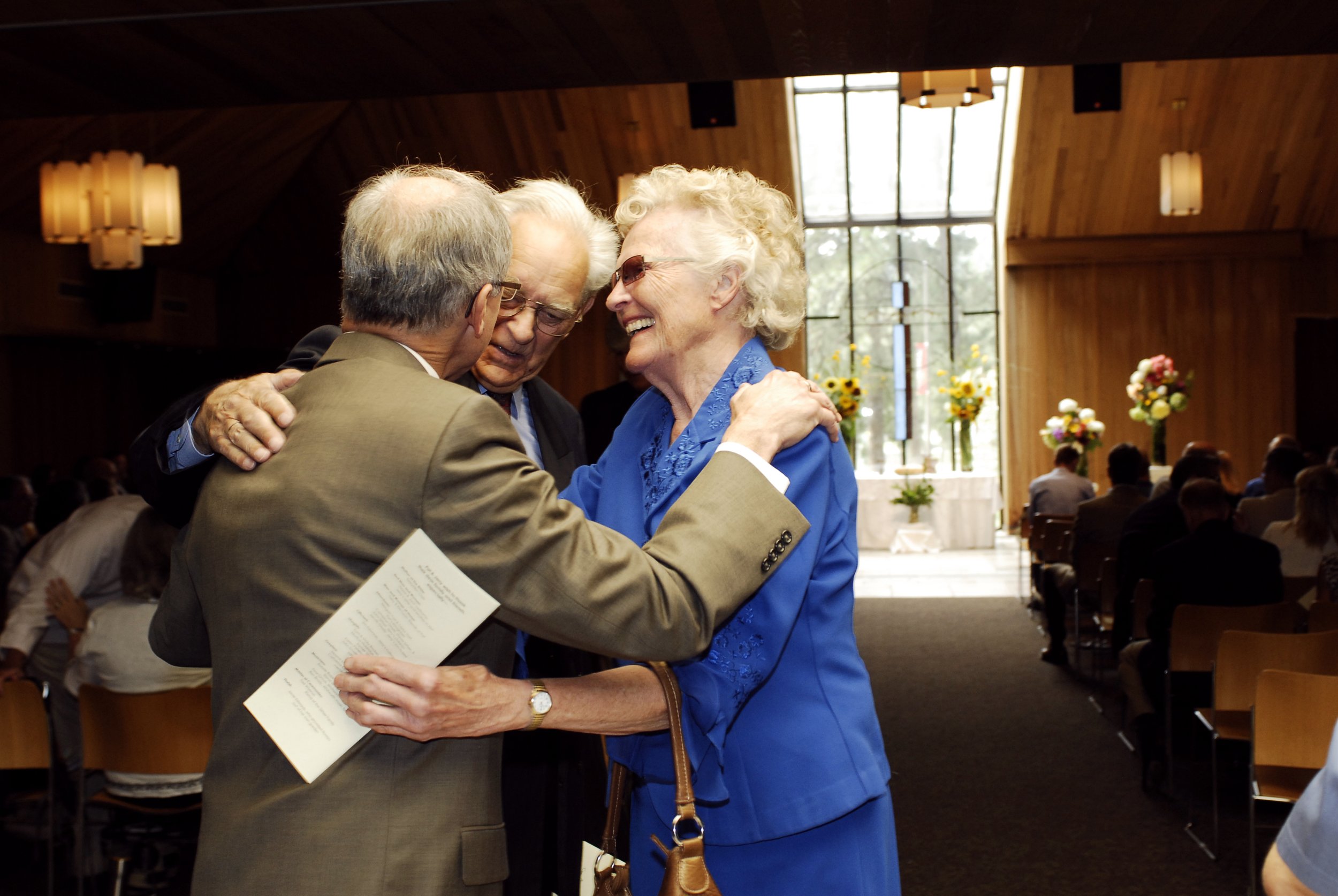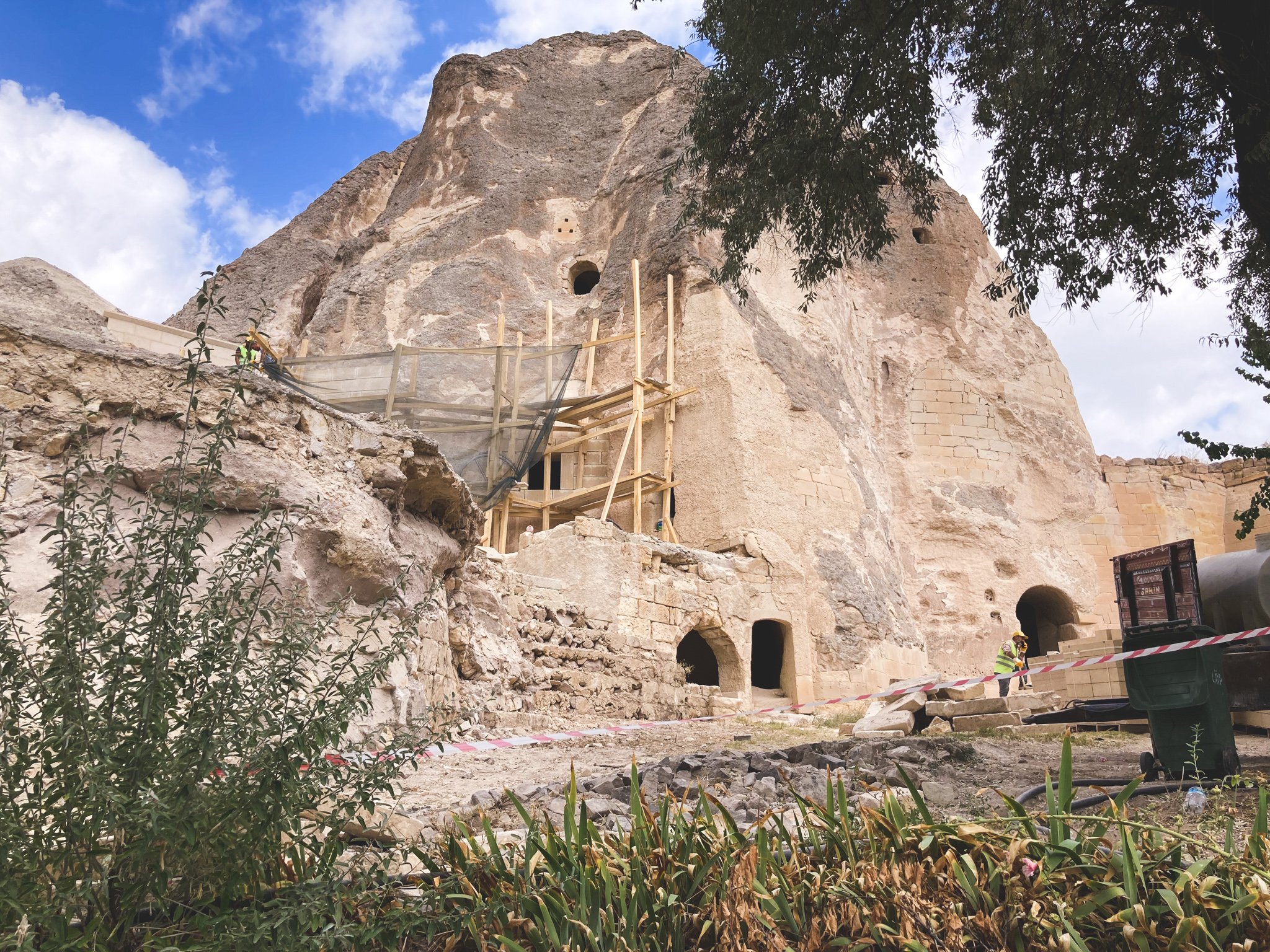

Suffering: Story
“… Still, we must beware of sentimentalizing the biblical story. Most of the stories in the Bible tell tales of struggle and suffering, and they introduce us to a God who plays an ambiguous role, often making life harder rather than easier.
This is especially true of the Joseph story. We can read it in half an hour, but Joseph lived it, and he had no idea how it would turn out. This is no sweet and simple story, once you get inside it.”

Suffering: The Silence of God
But silence can have a different character to it, more like the silence of a mother gently rocking a sick baby. It is warm and comforting, a silence of presence, even though the baby continues to feel discomfort…

Suffering: How do we make sense of it?
“Suffering poses a special problem for Christians because Christians face the daunting challenge of reconciling their belief in God with the horror and pain of suffering. You know how the question goes, and perhaps you have asked it yourself in the wake of some loss—
’How could a good and powerful God allow suffering?’…”

Suffering: What do we mean by it?
Christianity certainly addresses the problem of suffering, and it does so, I believe, convincingly. But its “answers,” such as they are, do not read like a theological treatise. Reading the Bible on suffering is more akin to making our way through a rugged mountain landscape. The Bible gives us a map of the terrain, to be sure; but the pathway we try to follow is not straight, smooth, and clear. We often get lost along the way…

A Tribute to Rits
He grew up in a world that preceded megachurches, pastors as brands, and social media. His standard of success, therefore, was not informed by modern metrics. He served small churches. I never once heard him complain about it. He developed deep relationships with people without once thinking about breadth of influence. He cared for them from cradle to grave. He was an old soul in a world that values youth, yet he exhibited youthful energy in a world grown prematurely old and weary with its constant attention to image. He smiled frequently. His eyes had light in them. He spoke with a firm voice. Rits was driven by conviction…

Touring Turkey: Part 3 “Cappadocia: Marginal and Mainstream”
Still, the cooperation—and sometimes collusion—of faith and empire was usually bad for faith, and eventually for the empire, too. It often dragged the church into the affairs of state as a willing partner, which led to compromise and abuse of power. Empire can justify almost anything in the name of God once it recruits the church to its side.
Still, there are notable exceptions. One comes immediately to mind…

Touring Turkey: Part 2 “The View from Assos”
We keep forgetting this. We assume Rome always has the advantage, which is why we keep betting on it. We keep betting on churches that resemble the Roman acropolis and pastors that behave like Roman emperors, on political parties that appear to favor Christianity and on political leaders that court—or manipulate—the Christian vote. Anything that promises easy and instant success. Anything that dazzles us. Anything that promises power…

Touring Turkey: Part 1 “Paul and the Glory of Rome”
It was exactly what Rome wanted to hear. Rome ruled as much through its glory as it did through its army. The sheer magnitude, magnificence, and majesty of its cities was enough to impress anyone. It certainly impressed us. The emperors would have been amused and pleased…

New Space, New Place
Space isolates; place connects Space separates; place welcomes. Space embodies ownership, freedom, and independence; place demands commitment and loyalty. We fill space; we share place…

Retirement (Part III): The University
At its best I would put Whitworth up against almost any institution. But we must guard its mission and protect its delicate ethos. A clear boundary won’t do it for us. We have to do the work ourselves. We are always one step away from disaster. It all comes down to robust commitment to aim at the bullseye.
That is one reason why I cherished it so much while I taught there, and why I still cherish it today.

Retirement (Part II): Whitworth
Retirement is cause for celebration, to be sure, but also for reflection. I begin with my experience at Whitworth. I never aspired to be a university professor. I fell into the job, quite by accident. Or by providence, which I think is far more accurate…

Retirement: The Celebration
Every so often someone experiences the good fortune of landing a job at just the right time and in just the right place. Such is the case for me. I came to Whitworth at just the right time; and it was just the right place…

Like Salt (Part VIII): Truth
Still, there is a movement currently under way that shows promise of resolving the conflict and healing the division.
Why is this important? It shows how salty Christian leaders can do the work of the kingdom, even and especially in theology. They strike a balance between charity toward opponents, on the one hand, and a fierce commitment to the search for truth, on the other. However rare, it is possible to do both.

Like Salt (Part VII): Yes…But no…
How can we live as genuine Christians in this, or any other particular society? How can we obey the commands of Jesus and live like salt, and do so RIGHT WHERE WE ARE?
I would suggest we live in a “Yes . . . but no . . .” way.

Like Salt (Part VI): The “Third Way” as the Salty Way
We have opportunity, but we also face danger. “If salt has lost its taste,” Jesus said. “How can its saltiness be restored?” Salt is only salt if it tastes like salt. If not, it is little more than a white placebo. Salt’s usefulness is in its function. Jesus calls Christians to be salty.

Like Salt (Part V): Joy
Joy is different. It is not rooted in immediate circumstances. Christians believe in the kingdom, in another and greater reality that envelops this one. Christians wait for it, live for it, and hope for it, as Paul explains in Romans 8:18-25. Joy affirms the belief that God is at work in the world, often in ways that are barely visible to the human eye…

Like Salt (Part IV): Resourcefulness
Christians in America are spoiled, largely because we get our way most of the time. Not all the time, of course. But enough to delude us into thinking we can and perhaps should be able to get our way all the time.
Our situation is hardly the historical norm…

Like Salt (Part III): The City
If you follow this blog at all, you will see that I have already entitled the last two blog posts, “Like Salt.”
I am launching a series of blogs addressing what it means for Christians to “seek the welfare of the city” and to live “like salt” in society.
The deep divisions and palpable confusion we see in the American church today makes this topic especially compelling to me…

Like Salt (Part II): Shame and Shamelessness
We have come to a crossroads and face a moment of decision. We as Christians must choose to live like salt. If we fail, the food of democracy will lose its taste and appeal. Eventually it will rot.
This is no longer about which party is more Christian. It is about how Christians behave in both parties. Unless Christians aim to live as real Christians in both parties, those parties will coopt the church, making it little more than a lapdog.

Like Salt (Part I): The Evangelical Movement
Christians have functioned best in America when they have done their work quietly. To be quiet is to be faithful and obedient, not loud, belligerent, and boastful; it is to choose persuasion over coercion; it is to serve the least of these rather than dominate as the greatest of these; it is to seek for truth, refusing to believe cultural lies. It is to put Jesus ahead of all other loyalties, commitments, and convictions.
